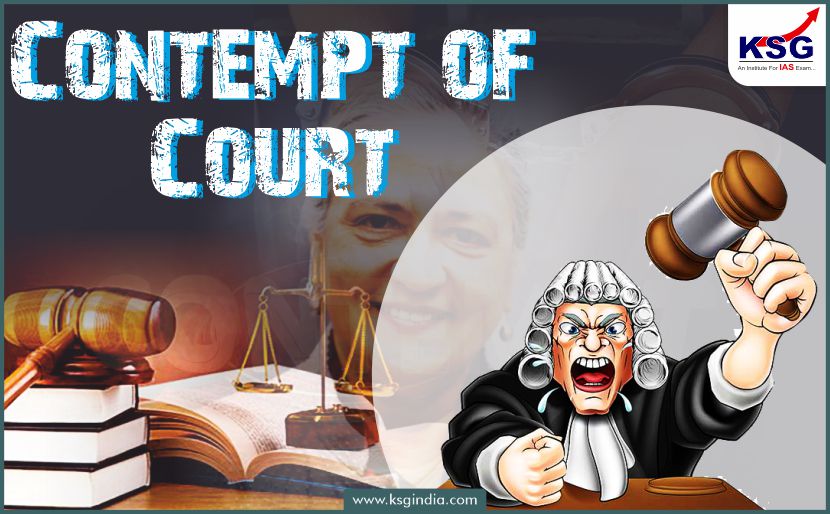Contempt of Court

Michael Arul, businessman and son of late high-profile IGP F.V. Arul, was arrested by the police on Saturday, and has been lodged in the Saidapet sub-jail.
Contempt of Court

Michael Arul, businessman and son of late high-profile IGP F.V. Arul, was arrested by the police on Saturday, and has been lodged in the Saidapet sub-jail. The arrest was effected following an order of the Supreme Court on a contempt petition filed by his estranged wife Jennifer Arul, a journalist.
What is Contempt of Court?
Contempt of Court refers to the offence of showing disrespect to the dignity or authority of a court. While the basic idea of a contempt law is to punish those who do not respect the orders of the courts, in the Indian context, contempt is also used to punish speech that lowers the dignity of the court and interferes with the administration of justice.
Types of Contempt of Court:
According to the Contempt of Court Act, 1971, contempt of court can either be civil contempt or criminal contempt.
- Civil contempt means wilful disobedience of any judgment, decree, direction, order, writ or other process of a court, or wilful breach of an undertaking given to a court.
- Criminal contempt, on the other hand, is attracted by the publication (whether by words, spoken or written, or by signs, or by visible representations, or otherwise) of any matter or the doing of any other act whatsoever which:
(i) Scandalises or tends to scandalise, or lowers or tends to lower the authority of, any court.
(ii) Prejudices or interferes or tends to interfere with, the due course of any judicial proceeding.
(iii) Interferes or tends to interfere with, or obstructs or tends to obstruct, the administration of justice in any other manner.
What is the punishment for contempt of court?
According to the Contempt of Court Act, contempt of court may be punished with simple imprisonment for a term which may extend to six months, or with fine which may extend to two thousand rupees, or with both, provided that the accused may be discharged or the punishment awarded may be remitted on apology being made to the satisfaction of the court.
Related Information:
- Article 129 and 215 of the Constitution of India empowers the Supreme Court and High Court respectively to punish people for their respective contempt.
- Section 10 of The Contempt of Courts Act of 1971defines the power of the High Court to punish contempts of its subordinate courts.
For maintaining Judiciary’s independence contempt of court power is important.
Source: https://indianexpress.com/article/explained/explained-contempt-of-court-attorney-general-7049560/
